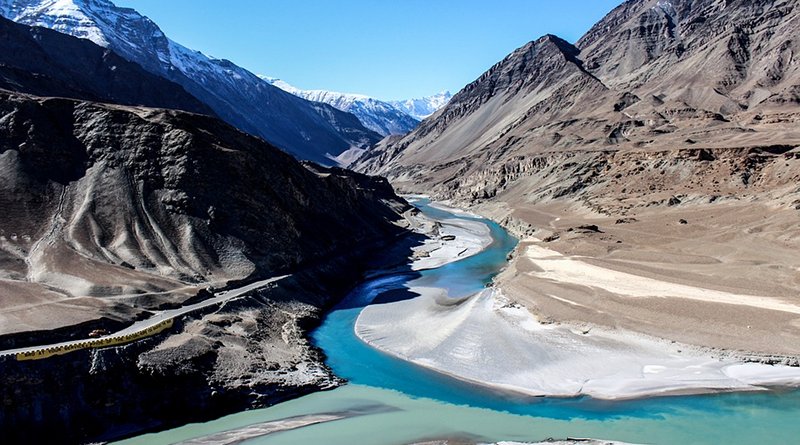Conflicts Over Water: Who Wants What from Indus Water Treaty? – OpEd
Treaties are the guarantees to maintain peace and stability in the international politics or among the two countries. However, the validity, credibility and violability are dependent upon the signing countries. Most of the time treaties are revisited due to the change in the dynamics of issues.
While sometimes states withdraw from these mutual agreements because they no longer find it suitable for their countries’ national interest. To ensure the respects of the treaties, Vienna Convention on the Law of the Treaties was signed in 1969. It says that violation of any treaty is a crime. However, as there exist no overarching body that hold the violator accountable, it remains vague that until when state will follow a particular mutual agreement. Such some treaties are also signed between Pakistan and India, the two archrivals in regional security complex in South Asia. After the partition, two state came up with territorial and water issues majorly.
For the territorial issues, both countries have fought three and a half wars, but fortunately they were able to sign a water agreement in 1960 known as Indus Water Treaty. The treaty said that three eastern rivers, Beas, Ravi and Sutlej came under the control of India, while three western rivers Jhelum, Chenab and Indus came under Pakistan’s domain. Pakistan allowed India to use 20% of the water of eastern rivers for agriculture and irrigation. Moreover, the treaty asked the two countries to remain respectful to each other and inform the other country six months earlier if it is going to conduct any construction at the river. But whether the two countries have respected the treaty between them.
Importantly, Pakistan has never carried any action of irresponsibility that could threaten the legitimacy of Indus Water Treaty. It is always the Indian side that has been so vigilant and cared less about the mutual agreement. For years, there was no war recorded for the water issue. But recent Modi government has set the stage for any escalation as the government looks keen in violating any such legal bindings. India is alleged of initiating Kashanganga dam on Jhelum River and Ratle dam on Chenab River. In 2016, Modi sad that blood and water cannot flow together hinting something sinister in his mind. Pakistan, understanding the nature of the violation, requested for arbitration under Article IX (5) and Annexure G of the Treaty in 2016 which was transmitted and received by India on 19 Aug 2016. Pakistan’s case at the court is strong and there are chances that India might lose it. Recently, India sent a notice to Pakistan suggesting therein to modify the IWT and asked for reply within next 90 days. Looking into the charter of the treaty, the Article 12 (3) says that the treaty can be modified and can be terminated as Article 12 (4) says. But it does not allow any unilateral termination or modification. The treaty has no provision of unilateral modification or annulment. India with its sinister intentions is deeply looking into unilaterally modifying the treaty.
In 2016, New Delhi established an inter-ministerial task force to look into the treaty with a “sense of urgency”. When Pakistan asks the international community to mediate, India is habitual of throwing any such provisions into Bin in essence of bilateral mechanism to resolve issues. But violation of a treaty is not a bilateral concern rather it threatens the whole mechanism and laws that ensures relations among other states also. If India tries to withdraw from the treaty of violate any such provisions, it will be taken as a crime. Moreover, it will be a breach of Vienna Convention on laws of Treaties signed back in 1969.
For the sake of maintaining peace and stability in South Asia and protecting the integrities of mutual treaties among countries, the international community must respond to these Indian motives. It has already done a lot damage to regional peace and bilateral treaties when it revoked Kashmir’s right to self-determination. Pakistan would never allow any unilateral stance over Indus water treaty as the country is already facing repercussions of such actions taken by Indian side. Moreover, if anything happens, it will put Pakistan in dilemma in choosing the right course of actions. Because violating a treaty is a breach of Pakistan’s sovereignty. How does it manage the problem, will require a diplomatic wisdom on Pakistan sides to hold India accountable without doing any damage to regional peace.

